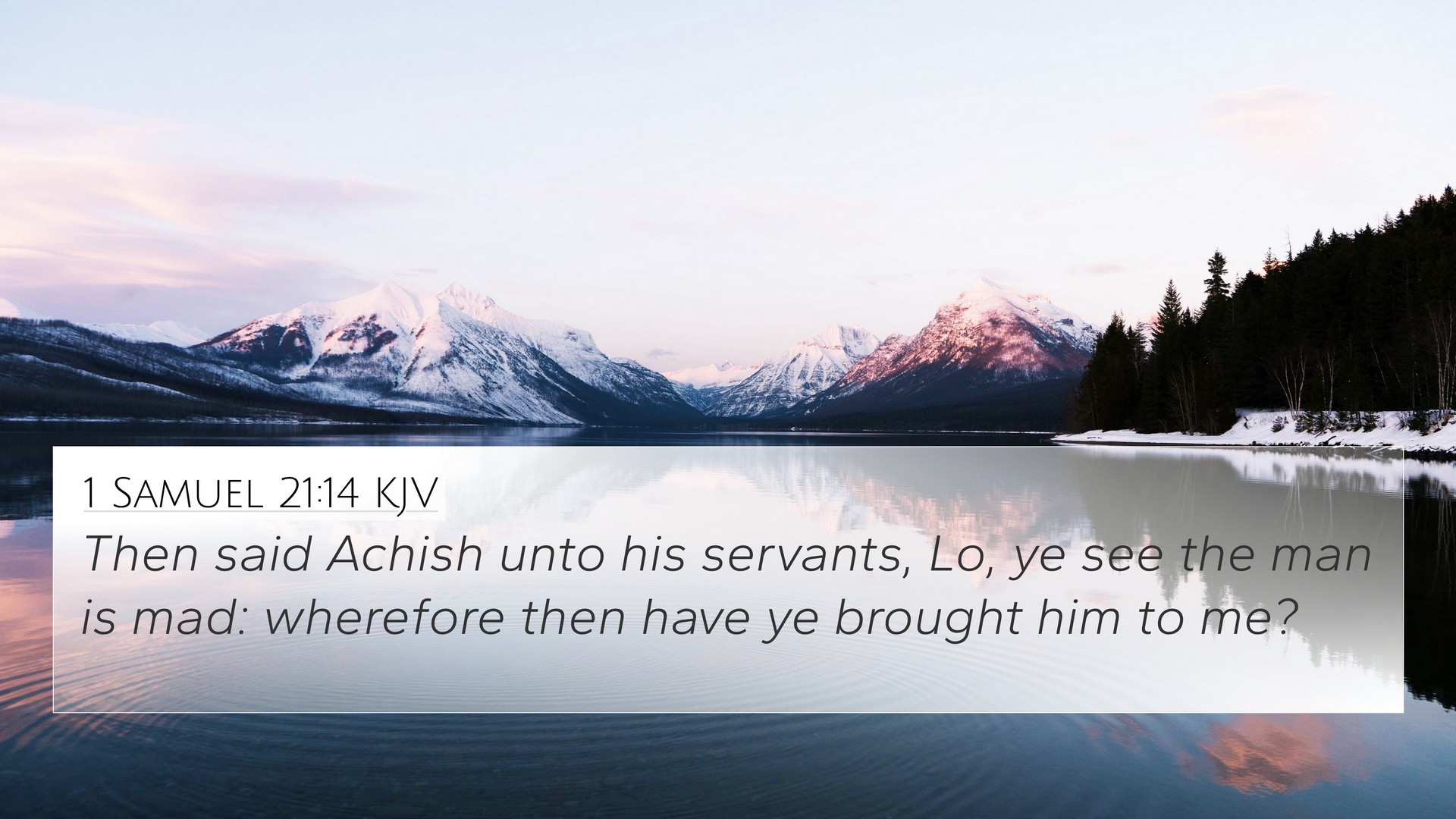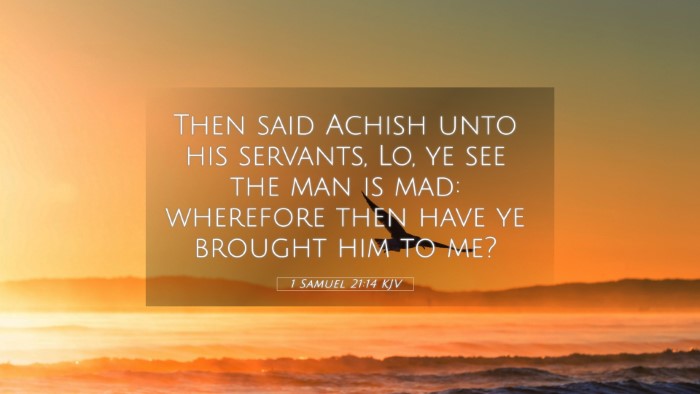Understanding 1 Samuel 21:14
Bible Verse: 1 Samuel 21:14 - "Then said Achish unto his servants, Lo, ye see the man is mad: wherefore then have ye brought him to me?"
This verse finds itself in a dramatic narrative where David, fleeing from King Saul, seeks refuge in Gath, a Philistine city. The context of this verse is crucial to understanding the thematic connections and implications in Scripture.
Contextual Analysis
Achish, recognizing David's feigned madness, questions his servants about bringing a potentially dangerous individual before him. David's act of dissembling exhibits a profound survival instinct amidst peril, reflecting themes of divine deliverance and the protection of God's anointed.
Insights from Public Domain Commentaries
-
Matthew Henry's Commentary:
Henry emphasizes that David’s behavior was a stratagem to escape the king’s wrath. He suggests that desperation can lead individuals to acts that may appear irrational to others. This illustrates God's providence in seemingly desperate situations.
-
Albert Barnes' Notes:
Barnes notes David's fear and subsequent deception as a warning against the lack of faith in God's protection. He reflects on how fear can drive one to compromise integrity, highlighting that God often uses flawed circumstances for His purpose.
-
Adam Clarke's Commentary:
Clarke suggests that the act of madness was not just a ploy but could symbolize how the righteous may seem foolish in the eyes of the worldly. He emphasizes the irony of the situation—David, a man after God's own heart, appears mad while being pursued by the very king whom he would not harm.
Thematic Connections and Cross-References
This verse can be interlinked with various themes found throughout the Bible, demonstrating the interconnectedness of scriptural texts:
- Psalm 34:19: "Many are the afflictions of the righteous, but the Lord delivers him out of them all." - Relates to David's plight and God's redemptive power.
- 1 Samuel 18:12: "And Saul was afraid of David, because the Lord was with him." - This recounts the source of David's troubles.
- Proverbs 29:25: "The fear of man lays a snare..." - Highlights themes of fear and the consequences of distrust in divine protection.
- Matthew 10:16: "Behold, I send you out as sheep in the midst of wolves..." - Jesus speaks to the need for wisdom and innocence amid danger.
- 2 Corinthians 10:10: "For they say, 'His letters are weighty and powerful, but his bodily presence is weak, and his speech contemptible.'" - Reflects on perceptions versus realities of true strength.
- Philippians 2:7: "...but made himself of no reputation, taking the form of a bondservant..." - Emphasizes the humility associated with the righteous.
- Ecclesiastes 7:15: "There is a just man who perishes in his righteousness..." - Comments on the apparent irony of the righteous suffering.
Connecting Through Cross-Referencing
The act of cross-referencing is a powerful tool for readers seeking deeper insights. By identifying connections between Bible verses, such as those noted above, one can uncover layers of meaning and application within the Scriptures.
Conclusion
1 Samuel 21:14 serves as a profound reminder of God's sovereignty over human affairs. Achish's recognition of David's madness becomes a backdrop for the unfolding of God's plan for His servant, signaling that even in moments of seeming vulnerability, divine purpose prevails.
Understanding the nuances of this verse encourages believers to delve deeper into the word of God, drawing parallels and learning from the experiences of biblical figures.



